By Prof. Dr. Mehmet Seyfettin Erol
After US President Donald Trump announced on August 13 that Israel and the United Arab Emirates (UAE) had reached an agreement to “completely normalize their relations”, all eyes turned to the Arab-Israeli issue and Palestine once again. This development, which initially ignored Palestine altogether, appeared as a new rupture with the Gulf states in the Camp David process which started with Egypt (1979) and continued with Jordan (1994). This is the first time that a Gulf country has recognized Israel, and it is undoubtedly a great diplomatic success for Tel Aviv. First Egypt, then Jordan, one of the largest refugee camps, and now the UAE, Palestine has weakened politically, economically, financially and militarily, while Israel has grown stronger within the scope of the US’ “Deal of the Century” and the “Great Israel Project.”
With this agreement (which will allow the UAE to draw a new road that will reveal the great potential in the region, although it calls it a “common road map”), it seems that the leadership of the Arab world (Greater Arabia) has already acknowledged the conditions Israel has demanded and will put before them in their imaginary framework. In the coming weeks, we will see clearly why Prime Minister Benjamin Netanyahu called the occasion an “historical day.”
https://uwidata.com/5067-the-end-of-the-greater-middle-east-project-the-case-of-kurdistan/
DIVIDING ISLAMIC GEOPOLITICS AND BUILDING A GREATER ISRAEL
Although the agreement between the two countries has been called “normalization”, it is obvious that the current crisis will grow worse due to the resulting process and in light of previous experiences. Although the agreement aims to legitimize and accelerate the Great Middle East Project (MENA) through the UAE and to impose it on the Arab world, and especially the Palestinian people, it is also clear that its main purpose is to divide the Arab-Islamic world and bring it to new conflicts.
The agreement is important in terms of revealing a historical continuity as well as the subcontractor-agent roles of the UAE and Saudi Arabia in the MENA. Namely, while Saudi Arabia, under the rule of Ibn Saud, played the role of calming-persuading Arabs, especially in Palestine, to accept the establishment of the state of Israel in the process of the implementation of the “Great Israel Project”; today’s Ibn Saud, the UAE’s Emir of Dubai, Rashid Al Maktum, seems to play a similar role. Thus, the agreement unearthed the alliance between Israel-UAE-Saudi Arabia, although there is clearly still a struggle between Saudi Arabia and the UAE for leadership of the Arab world and the “Greater Arabia”.
This point should not be overlooked, as the imperialist powers are once again using their leadership ambitions in the region and opening the way for new betrayals, actively encouraging them. As a matter of fact, the imperialist powers, which effectively used the rivalry between Sharif Hussein and Ibn Saud during the collapse of the Ottoman Empire and later in the establishment of Israel, seem to have implemented a similar strategy in the context of UAE-Saudi Arabia. At this point, it should not be surprising if Rashid al Maktoum becomes a second Sharif Hussein or Ibn Saud.
https://uwidata.com/11562-do-national-interests-oblige-turkey-to-cooperate-with-israel/
As it stands, Saudi Arabia cannot sign such an agreement due to the current situation and special conditions. After all, the de facto alliance-cooperation/alliance between Israel, Saudi Arabia and the UAE has now become official, and Riyadh no longer seems to deny it.
A NEW STEP TO TRIGGER THE GROUNDSWELL
On the other hand, the “treason treaty” will play an accelerating role in awakening movements in the Islamic world, especially among the Arabs. In this context, the agreement could accelerate a new “Arab Spring” process centered on the Gulf-Arabian Peninsula. The disintegration that started with Qatar and Oman in the Gulf could bring about a civil war that peaks with Yemen and deepens and expands into Saudi Arabia and other countries in the region. In other words, the process could create a boomerang effect for the Saudi Arabian and UAE.
It has been expressed by Palestinian leaders that the agreement is far from convincing for Palestine, and is even considered a betrayal of the Palestinian-Arab cause. Although Israel seems to have agreed to suspend its annexation plans for areas of the occupied West Bank within the scope of the agreement, there is no practical reality to this promise. Therefore, the treasonous treaty might actually deepen the resistance process in the region, especially in Palestine. Undoubtedly, Lebanon-centered developments will be decisive here.
https://uwidata.com/12090-from-palestine-to-the-caliphate-implications-of-israels-annexation-of-the-west-bank/
TARGETS: TURKEY AND IRAN
In this context, Iran’s reaction to the agreement should not be limited to Palestine. While Iran sees the deal as part of a broader strategy against it from the Gulf, it also sees this as a stage of a wider attack against the “resistance front” As a matter of fact, the following words of Iranian President Hassan Rouhani, who emphasized that the agreement is a big mistake and betrayal, summarize Iran’s perspective: ‘We warn them. Do not create an area for Israel in the region. Otherwise, you will find a different response. I hope they will listen to the warnings and they will turn back from the wrong path.’
In the “normalization agreement”, although the “Iranian threat” and cooperation against it is emphasized, it is known that both countries hope to contain, neutralize, destabilize and destroy Turkey rather than Iran. The UAE has waged a war against Turkey in almost all fronts, and does not hesitate to disclose it. Therefore, it seems that Iran is not the main objective of this agreement, but Turkey as well, who is growing stronger with each passing day in the Arab-Islamic world.
The President of the Republic of Turkey Recep Tayyip Erdogan offered this explanation and responses made by the Ministry of Foreign Affairs confirm it: “The step towards Palestine is not one we can tolerate. I instructed my Foreign Minister, we can take steps such as suspending relations with Abu Dhabi and withdrawing our ambassador.” Such statements are very important in terms of showing the stage the process has reached. Likewise, the statements of the Ministry of Foreign Affairs should be noted: “The Palestinian people and administration have the right to react harshly to the agreement between the United Arab Emirates and Israel. History will not forgive the behavior of the United Arab Emirates, who signed such an agreement.”
THE GEOGRAPHIC ANSWER: TO UNITE!
Another issue that should be noted is that such treaties have further strengthened the common resistance in the region and that the upcoming period will see very different developments.
Namely, until yesterday, those who desire to divide the geography along ethno-sectarian fault lines and to materialize an “Islamic Civil War” in terms of Sunni-Shia Islam by Turkey-Iran, are experiencing a deep weakness in the face of destructive moves of Turkey and Iran against these efforts at disrupting the unity of the Islamic world. Therefore, while carrying the Sunni-Shia-centered Islamic civil war via the Gulf-Iran dimension, they are also trying to divide the Sunni understanding of Islam. Targeting Turkey via the UAE and Wahhabi Saudi Arabia is not a coincidence.
Thus, Turkey and Iran can fight back against these actions by bringing the other states of the region to their side, and we should not be surprised if in the future their allies include Qatar, Iraq, Syria and even Yemen…
Prof. Dr. Mehmet Seyfettin Erol / Ankara Hacı Bayram Veli University/AHBVÜ Department of International Relations, President of Ankara Centre for Crisis and Policy Research (ANKASAM)








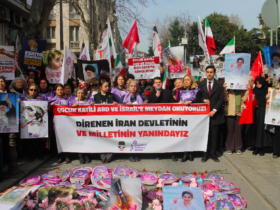
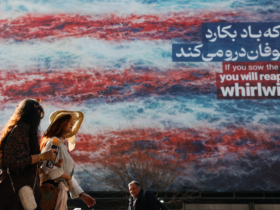

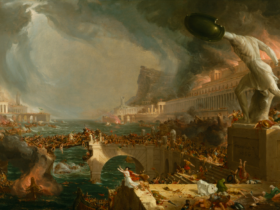
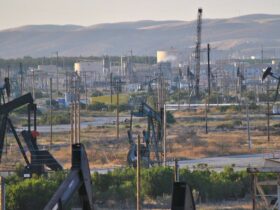
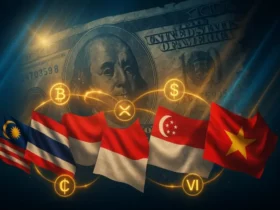
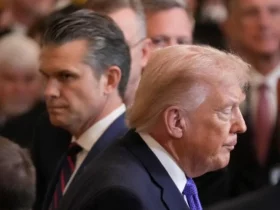
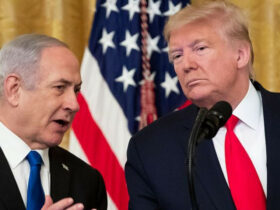

Leave a Reply